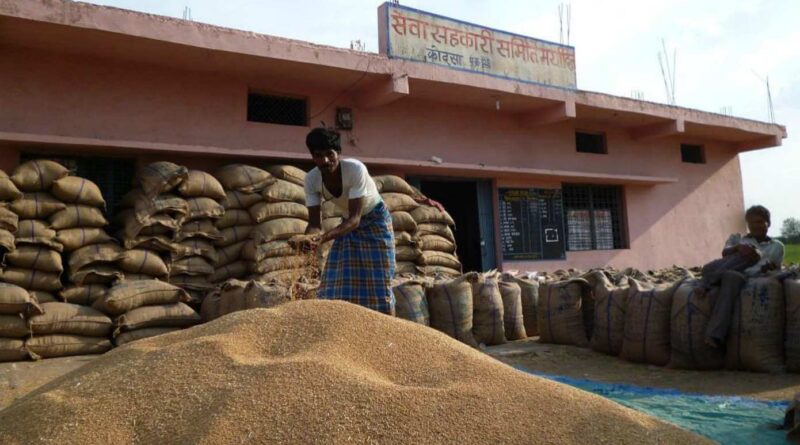Govt to begin open market sale of wheat & rice from Aug 1
By Sandip Das
The government has approved sale of wheat and rice in the open market for the bulk buyers from next month from buffer stocks, in a bid to improve domestic supplies and preempt rise in the prices of the two staple cereals in the coming months,
The food ministry has asked the Food Corporation of India (FCI) to start offloading wheat and rice at a price excluding transportation at Rs 2325/quintal and Rs 2800/quintal respectively from August 1. The price for wheat is lower than its prevailing market price of Rs 2400/quintal.
According to an official note, the exact quantity of grain stocks to be offloaded will be decided by FCI in consultation with the ministry after keeping the stock for requirement under the public distribution system, buffer norms and additional quantity of 2 MT.
Last year, the FCI had commenced open market sale opertions from June and had offloaded a record 10 MT for bulk purchaser in FY24. Inflation in wheat was 6.53% in May on year and due to record open market sales of wheat from the FCI stocks, inflation has been in single digit since August, 2023.
As on Tuesday, FCI has 28.04 MT of wheat stock against the buffer of 27.58 MT for July 1. An official note had stated that after meeting the requirement for the public distribution system and other welfare schemes, which is approximately 18.4 MT, sufficient stock of wheat will be available to undertake market interventions, as and when required.
In the case of rice, the government effectively has a large surplus of more than 47.49 MT of rice, against a buffer of 13.54 MT for July 1. The government move to offload rice to bulk buyers through weekly e-auction did not find encouraging response from the trade.
Officials said there will have to be some measure to offload huge rice stocks from the buffer including supplying to states before the new paddy procurement season commences from October 1.
Last month, the government had imposed stock holding limits on wheat for retailers, wholesalers, processors and big-chain retailers till March, 31, 2025.
According to Sanjeev Chopra, secretary, department of food and public distribution last month said that there is no shortage of wheat in the country, the move to impose stock holding limits on the commodity would help improve supplies. Chopra ruled out lifting the export ban on wheat imposed in May 2022. According to the agriculture ministry, wheat output in the 2023-24 crop year (July-June) is estimated at 112.92 MT.
Urad prices decline
Meanwhile, the department of consumer affairs on wednesday said the wholesale prices of urad has declined by 3.12% and 1.08% respectively in key markets – Indore and Delhi compared to previous week on account of robust kharif sowing and imports. “In alignment with domestic prices, the landed prices of imported Urad are also on a declining trend,” according to an official statement.
Due to adequate monsoon rains so far, sowing of urad in Madhya Pradesh, Andhra Pradesh, Uttar Pradesh, Rajasthan, Tamil Nadu and Maharashtra has crossed 0.53 million hectare (MH) till July 5 against 0.36 MH respoted corresponding period last year. The agencies such as farmers cooperative Nafed and National Cooperative Consumers’ Federation of India commenced pre-registration of farmers for procurement of urad.
Retail inflation in urad in May was 14.06% on year and the prices had been in the double digit since November, 2023.
This article has been republished from The Financial Express.

